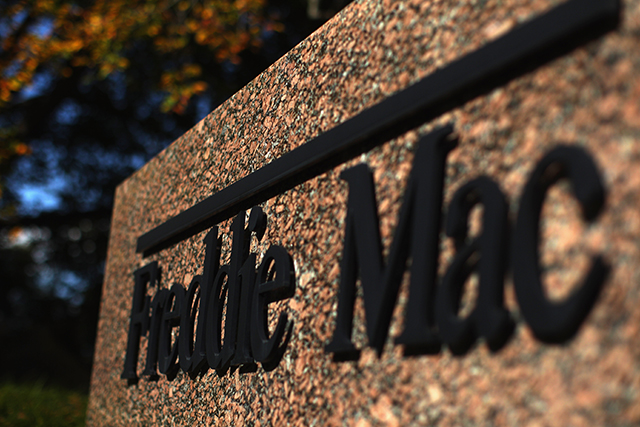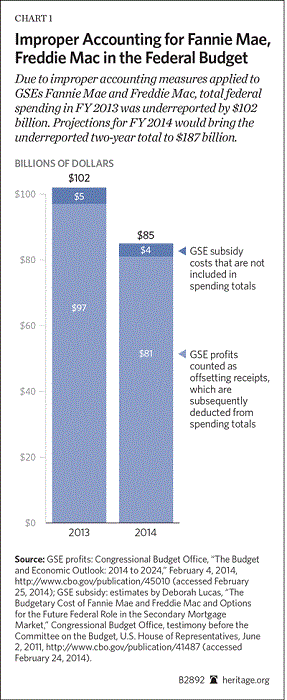CBO Report Estimates 2014 Deficit at Half a Trillion Dollars: Why The Real Deficit Number is Actually Higher
Romina Boccia /
Today the Congressional Budget Office (CBO) released its updated projections for the 2014 federal budget. CBO reports the 2014 deficit at $492 billion, just shy of a half a trillion dollars. However, this estimate should be taken with a heap of salt: It is arguably misleading to the extent that the operations of mortgage giants, Fannie Mae and Freddie Mac (GSEs), are improperly accounted for in the budget. Without that distortion, both spending and the deficit in 2014 would be higher by about $85 billion.
What’s curious about this CBO report is that it makes no mention of Fannie and Freddie’s impact on the budget, in contrast with previous reporting. In its Monthly Budget Review for March 2014, for example, CBO was very forthright about the distorting effect that the current GSE reporting has on the budget. CBO explained that:
Much of the drop in spending [over the past six months] occurred because payments from Fannie Mae and Freddie Mac to the Treasury were $42 billion more than they were last year. (Such payments are recorded in the budget as offsetting receipts—that is, negative outlays.)
Just a few hours from tax day, it is especially important that Congress and taxpayers understand that the GSEs pose a real and costly risk for the budget and how their current off-budget status distorts federal reporting on spending and the deficit. Treasury’s cash-flow method currently employed to account for GSE operations keeps trillions in potential taxpayer liabilities off the books.
Last week, the House passed the Budget and Accounting Transparency Act (H.R. 1872) which would put Fannie and Freddie on-budget. This would require the Treasury to more accurately report the impact the GSEs have on the federal budget by incorporating risk estimates about the $4 trillion in GSE mortgage guarantees.
Beyond 2014, the CBO report projects that deficits will begin growing again in 2017, before reaching trillion dollar levels by 2023. The public debt would rise from 72 percent of GDP to 78 percent of GDP. Meanwhile, the national debt, which includes borrowing from federal government agencies including the Social Security trust fund, would increase by, on average each year, a trillion dollars, surging from more than $17 trillion today to past $27 trillion in 2024.
With or without the GSE budget distortion, a half a trillion dollar deficit is little cause for celebration. Instead, lawmakers should begin the important process of putting the budget on a path to balance. Moreover, honest accounting for Fannie Mae and Freddie Mac should be a bipartisan priority, short of GSE elimination.


